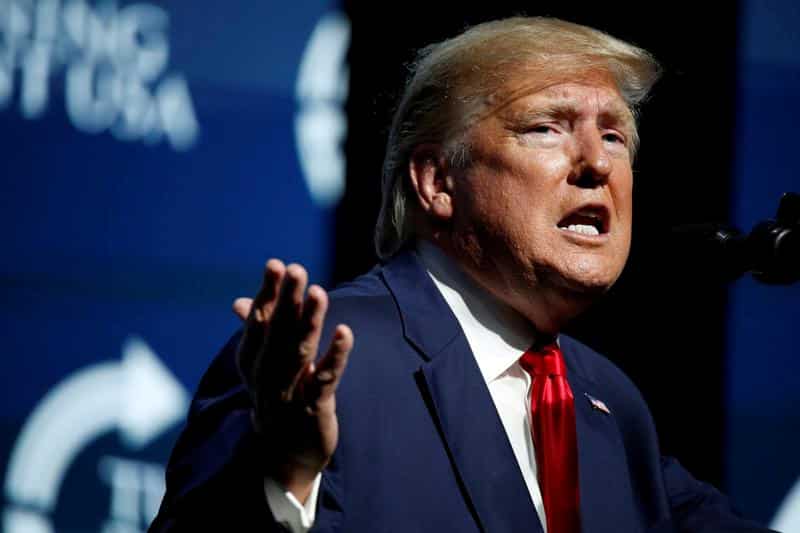Former President Barack Obama’s deputy national security advisor Ben Rhodes blasted President Donald Trump for his decision to authorize a strike to kill Iranian general Qassem Soleimani.
In a pair of tweets on Sunday, Rhodes said that Trump “in the midst of a full meltdown.” He added, “A vote for this man is dangerous for our national security.”
We have a President in the midst of a full meltdown during a major crisis of his own making. A vote for this man is dangerous for our national security. https://t.co/tPa9fQLIVt
— Ben Rhodes (@brhodes) January 6, 2020
Iraqis demand US leave. Counter-ISIS campaign suspended. Iran abandons limits on nuclear program. All in one day. To Mike Pompeo, that and threats to kill Americans are "a little noise" and we are safer. Pompeo is dangerously dishonest and incompetent. https://t.co/a3o1iVfyKN
— Ben Rhodes (@brhodes) January 5, 2020
Rhodes comments come amid questions about whether the strike was in accordance with domestic and international law.
Democrats argued that Trump should have sought authorization from Congress before signing off on the strike. House Democrats are expected to vote on a resolution that seeks to limit his authority in regards to military action related to Iran.
Over the weekend, legal experts debated whether the strike complied with international law. The United Nations prohibits countries from using force in sovereign states — unless they receive consent from that country.
As a result of the strike, Iran vowed to seek “harsh retaliation” against the United States.
Additionally, in an op-ed in The Atlantic published on Sunday, Rhodes accused Trump of risking war to fulfill his campaign promise of ending the Joint Comprehensive Plan of Action [JCPOA]— the 2015 aimed at curbing Iran’s nuclear ambitions.
He accuses Trump of being unable to explain what the JCPOA does and cites a series of steps Iran took to comply with the deal and slow down its march toward enriching uranium.
Despite Trump’s assurances that scrapping the deal would tame Iran, Rhodes argues, it has led to increased aggression.
“Iran has already resumed aspects of its nuclear program that were restricted under the JCPOA. And over the past year alone, Iran or its proxies have shot down a U.S. drone, harassed and seized oil tankers, bombed Saudi oil infrastructure, killed unarmed protesters, and resumed rocket attacks against U.S. interests in Iraq. During the implementation of the Iran deal, by contrast, there wasn’t a single such rocket attack from a Shia militia. Trump initiated the escalatory cycle that led us to this extraordinarily dangerous moment.”
Rhodes notes that in the aftermath of the strike, Iran has pressed ahead with their nuclear ambitions — essentially eliminating the possibility that European powers could convince Iran to honor the agreement. Iranian officials have said they would stop complying with the JCPOA altogether.
Finally, Rhodes says Trump’s policies have given way to an “Iranian adversary that has stepped up its provocations, and a newly unconstrained Iranian nuclear program.”
In closing, Rhodes says there are two ways to stop Iran from building a nuclear weapon, “The choice all along was between the Iran deal or an unconstrained Iranian nuclear program and some form of war.”
























